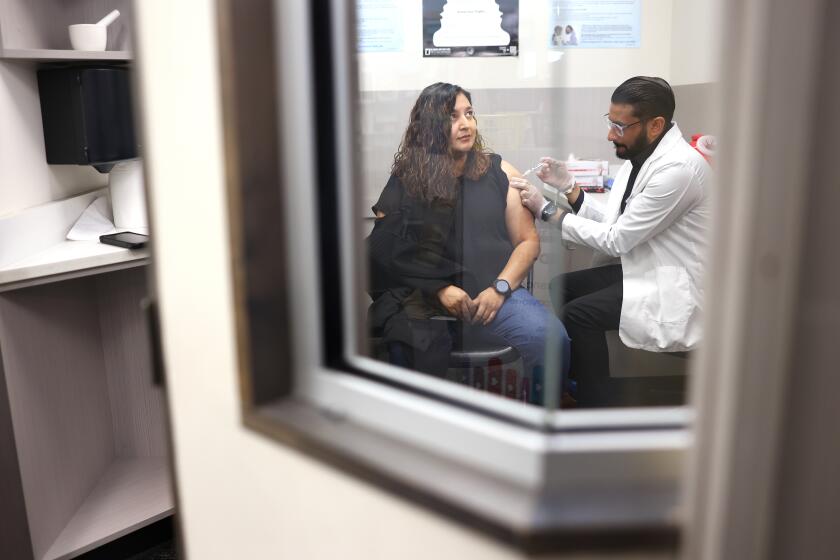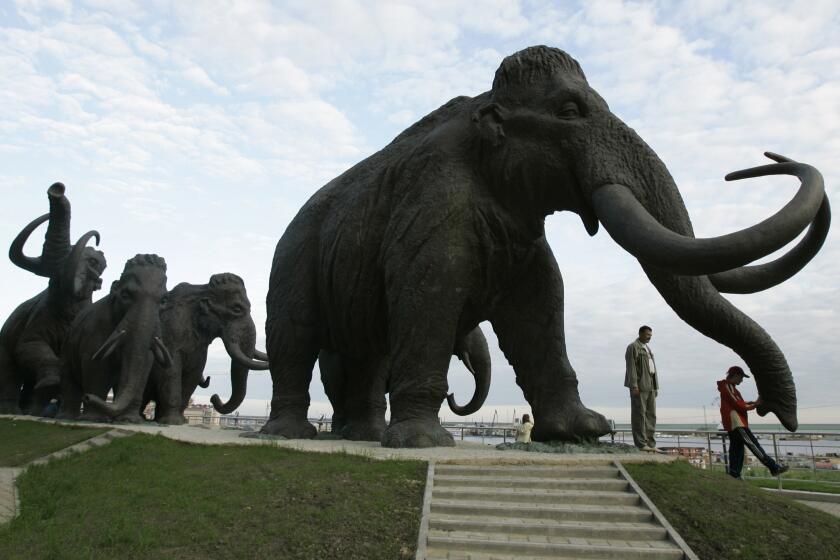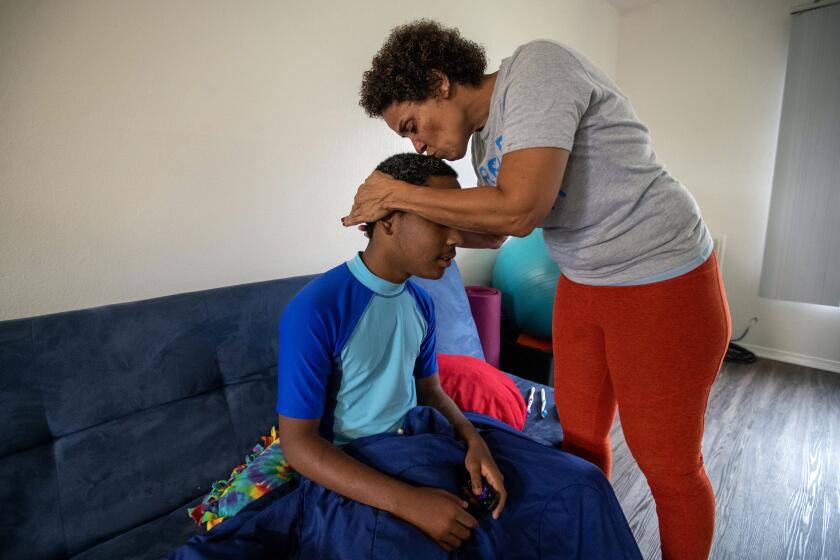PERSPECTIVE ON HEALTH CARE : You Bet Your Life on the Doctor Lottery : Whether we pick our physician or are assigned by a plan, bedside manner is good. But expertise is better.
My doctor.
To a lot of people, those words have a metaphysical sound. We want our doctors to be skilled and compassionate, but beyond that we secretly hope that they are also superhuman. The thought of coldly assigning a patient to a doctor like a car to a mechanic is simply appalling.
But is it really?
Many years ago, I lived with my family in a small Midwestern town I later renamed Hysterectomy Village. “Our doctor” was chosen because he was a member of my father’s service club. He performed hysterectomies on almost every woman over 35, including my two older sisters, and he got absolutely everyone’s tonsils before the age of 5. He was so revered that when he died, a monument was erected in his name in front of the public library.
After moving to California 12 years ago, I found a doctor through a bridge-playing friend. “He has a terrific personality and is never rushed,” she said. Before my first examination, he spent half an hour with me talking about politics and golf. What a great guy, I thought. I’d follow him anywhere. Except Fresno, where he moved to be near his grandchildren.
The following month, suffering from a severe case of bursitis, I consulted his replacement, a skinny little kid with a beard. “I believe we’ll find calcium deposits in your shoulder, which will probably require surgery.”
“No thanks,” I said. I left and did the only thing I knew how to do--asked for recommendations from my other bridge-playing buddies.
Helen’s doctor pulled what appeared to be a 2-inch needle out of a drawer. “This is cortisone and Novocaine. I’ll inject it directly into the joint and the inflammation will subside.” Sarah’s doctor prescribed muscle relaxants and instructed me to keep the arm moving to prevent “freezing.” Mary’s doctor put my arm in a sling and told me not to use it or “the erosion could cause deformity.”
All of my friends’ doctors had very nice personalities, but the divergence of their opinions was startling. How could I choose? What did I know anyway? I finally picked Doctor No. 3 because he looked like Warren Beatty. And, yes, my shoulder got better. But Dr. Beatty joined a rock group and also moved away.
Now comes the incident that would change the way I feel about doctors for the rest of my life. The doctor I’d been happy with for 10 years (a golfing buddy of my husband’s) found a “calcification” in my right breast. For four years, he insisted that it was perfectly harmless. “I’m very aggressive about these things,” he said, “but if you were on my own wife I’d tell you the same thing. Forget it.”
He sat beside me and held my hand for a long time after the pathology report proved him wrong. “Don’t worry,” he said. “We’re in this together.” I was grateful for his kind words but couldn’t help but think that had I been “assigned” to a better diagnostician, I probably wouldn’t be in this at all.
One of the greatest objections to a national health-care program is the fear that we won’t be able to choose our own doctors. We long for the good old days when doctors made house calls and took the time to get to know their patients. In fact, there is such a demand for these private one-on-one relationships that some medical schools are actively searching for students who majored in the humanities. Family-care doctors are in great demand; patting, touching and maybe even hugging could become a basic part of our medical care.
It would be ludicrous to send every sick person to a specialist. Such indulgence would kill any plan, no matter how many Rhodes scholars worked on it. GP’s can fix most of our problems. But in a serious illness, do we really want Mr. Rogers?
I guess you could say I chose my oncologist. I drew his name from a basket filled with five other names sent to me by the American Cancer Society. By that time, I was convinced that it was all a mater of luck anyway. What does any lay person know about choosing a doctor?
One thing is certain. Had I met him first, I would never have chosen him. He has a lousy personality. He’s a superscientist who works in a university medical center and rarely looks me in the eye; a technocrat who specializes in trying to keep women like me alive for five years or more. You’d think that he was born in that white smock and those nerdy glasses. I don’t know if he likes me. He says hello and asks me how I’m feeling. Then he examines me and leaves to consult with other cold fishes who have never seen me.
Sure, it would be nice if he’d sit down and ask about my golf handicap or what books I’m reading. There are times, too, when I could really use a pat on the back or even a hug. But nothing he could say or do could ever make me feel as warm and fuzzy as these four words: “You’re still in remission.”
I got lucky and drew a good name. And being assigned to a doctor under a national health plan sounds scary. But it was my own choice that got me into the trouble I’m in and may cost me my life.



